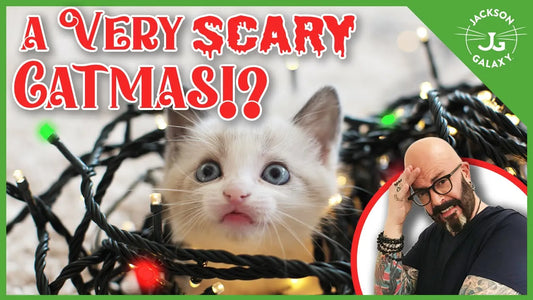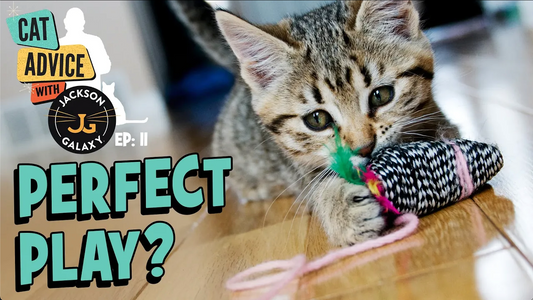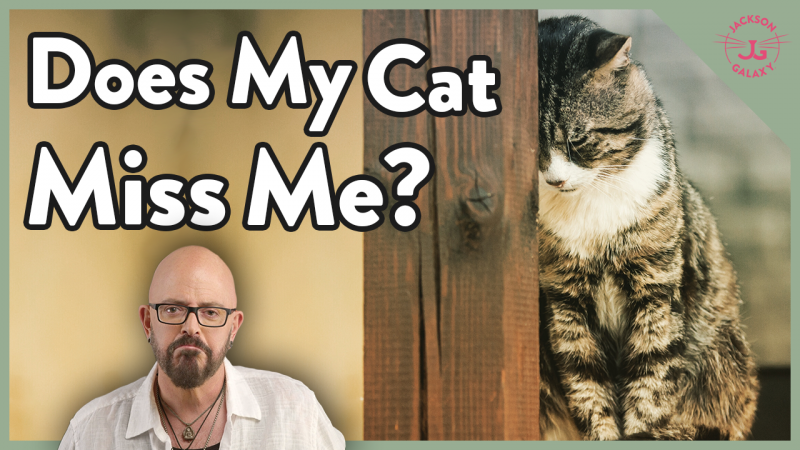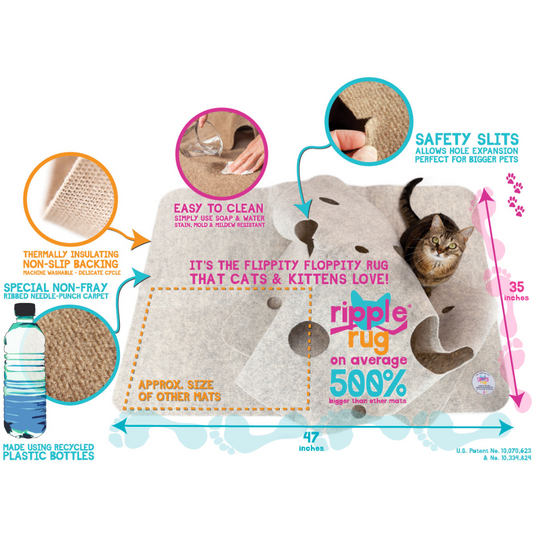One of the most commonly searched cat questions on Google is “Do cats miss their owners?” When you go off to work, on vacation or even just to the movies for a few hours, is your cat sad? Lonely? Hating on you? Well… yes and no.
The real question we have to answer is: what do we expect from our cats? But first, a quick history lesson…
History of the feline-human relationship
Historically, the relationship between humans and cats has always been mutually beneficial. Humans discovered that cats were really darn good at getting rid of mice, rats, and other animals - and cats discovered they could find food if they hung around humans! This relationship stretches back to the ships that carried humans over to the New World all the way to today when cats live on farms and in bodegas.
Somewhere along the line, we started to see cats as pets. We took them from the rural areas they once inhabited and brought them into our homes, and over time cats became less feral and more dog-like.
Myth: Cats don’t care about humans
Dogs are known to have secure and insecure attachments to their human guardians because that’s the way they were “made”. We’ve bred them to have certain traits and over time they’ve co-evolved with us. Knowing this, people like to say that cats don’t form similar attachments to us, they’re aloof, overly independent, they don’t care about us…
Folks, that is NOT TRUE!
In fact, a study conducted by researchers at Oregon State University showed that cats develop secure and insecure attachments to their human caregivers in much the same way that dogs and children do.
Feline social development
You can see just how strong this attachment can be in the case of bottle babies. Bottle babies are orphaned kittens who have been raised by incredibly generous, sleep-deprived humans who nurse them around the clock and socialize them. In my experience, these kittens form much stronger attachments to humans than those who are raised by a cat mom.
Kittens go through a critical phase of their social development between 2-9 weeks of age and any experiences during this period will inform their social responses and shape their personalities into adulthood. By interacting with their mom and littermates, they learn how to be a cat! They develop species-appropriate skills by playing, grooming, and learning how to recognize social cues.
The level of exposure to humans your cat had during this sensitive period will influence how much they “miss” you when you’re gone. (I put quotes around that because “missing” is very subjective! An independent cat may express it very differently than a “velcro cat” who is always at your side.)
So does your cat miss you when you work long hours? Sure! But they should miss you in a healthy way: “Ugh, my human is gone. Now what? I guess I’ll do some birdwatching and then take a nap.”
Separation anxiety in cats
If your cat has an unhealthy, insecure attachment to you, they will develop separation anxiety - and that’s a serious problem. On a scale of 1-10, their panic will turn up to 11! They may pace, vocalize excessively, poop and pee outside the litterbox, or become destructive because they’re so insecure about your absence.
How to Help Cats with Separation Anxiety
The one tried and true method of dealing with separation anxiety - as well as many other behavioral problems - is by establishing what I call the 3 R’s: routine, ritual, and rhythm. This ensures that your cat’s energetic ups and downs correspond to yours. By sticking to regular mealtimes and play sessions at the same time every day, you can train your cat’s body clock to go down when you leave for work.
And finally, if your cat still seems lonely, remember what I always say: two is better than one! Kittens should always be adopted in pairs, but even adult cats have so much to gain from the companionship of another cat. If you’ve got a solo cat, please consider adding another cat to the family.
I hope this helps you feel a little less guilty when you leave your cat!
P.S. Here’s my pro tip: cats whose environments are catified will probably be less sad when you’re gone! Check out my curated list of independent play toys and catification goods that will help them pass the time when you’re not home!















